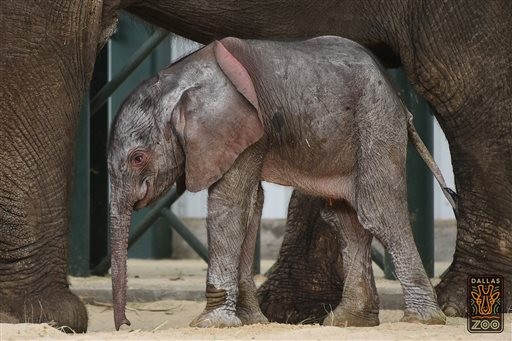Popular Reads
Top Results
Can't find what you're looking for?
View all search resultsPopular Reads
Top Results
Can't find what you're looking for?
View all search resultsHow you can start to change the world: Adopt an orphaned elephant
Every 15 minutes, an elephant is killed for its ivory. This is a devastating statistic that has resulted in 100,000 elephants being poached between 2010 and 2012. In the harsh plains of Africa, elephants are forced to overcome many daunting trials. They must struggle in order to find water, and must face predators and poachers along the way. In late 2013, my sixth grade class was assigned to create a project ranging from a documentary to a fundraiser, with the purpose of changing the world.
Change text size
Gift Premium Articles
to Anyone
E
very 15 minutes, an elephant is killed for its ivory. This is a devastating statistic that has resulted in 100,000 elephants being poached between 2010 and 2012.
In the harsh plains of Africa, elephants are forced to overcome many daunting trials. They must struggle in order to find water, and must face predators and poachers along the way. In late 2013, my sixth grade class was assigned to create a project ranging from a documentary to a fundraiser, with the purpose of changing the world.
While other students looked into refugees, environmental sustainability, or the prospect of a universal language, I was intrigued by the idea of protecting and fostering endangered animals. Inspired by groups such as the World Wildlife Fund (WWF) and the People for the Ethical Treatment of Animals (PETA), I began to look into the “adoption” of endangered animals.
(Read also: Sumatran rhino: Finding hope in the verge of obsolescence)
In my research, I stumbled upon the David Sheldrick Wildlife Trust (DSWT), which is an elephant orphanage in Nairobi, Kenya, that allows people to foster orphaned elephants. Using my vast research on endangered African elephants and elephant-themed products (such as elephant-shaped erasers and paperclips), I set up a fundraiser at my school. My goal was to raise US$50 in order to foster an elephant for one year. Instead, I raised $200 dollars to foster an elephant for four years. The elephant that I chose to foster is Mbegu. Mbegu's story is one of tragedy, but also of the birth of a new life.
Near the Naibunga Conservancy, an elephant (Mbegu's mother) had been shot dead after killing a woman in the community. Following this, the elephant herd had stampeded and left a young elephant calf behind. This elephant, Mbegu, was immediately attacked by the community of Kimanjo in revenge. During the attack, Mbegu was speared several times and took refuge in a nearby schoolyard. The children of the nearby school began stoning her until she collapsed. Luckily, she was immediately retrieved by the DSWT and the warden of the Naibunga Conservancy.
(Read also: Mobile app launched to help stop wildlife trafficking)
Upon arrival at the DSWT Elephant Orphanage, she was named. The name Mbegu means “little seed” in Swahili. I believe that this coincides with my life; similar to a seed, my experiences in life grew from there.
Three years later, I still receive watercolors of elephants in the trust’s care and monthly updates on Mbegu. She has evolved from a young, scared elephant calf into a confident, maternal elephant who is now almost three years old. In the updates I receive from the DSWT, I am told that she is a wonderful mini-matriarch with strong maternal instincts. I am also told that she loves her mud baths, is always looking out for the babies in their nursery elephant herd and is considered one of their most playful elephants.
I have grown along with Mbegu and fostering her has been a wonderful experience. I encourage everyone to visit thedswt.org/foster and donate $50 to provide for and foster an orphaned elephant.
***
Creative, musically talented and passionate, Zubin Amar is a 14-year-old student of Beacon Academy. His interests include singing, Harry Potter, Broadway/musical theater and wildlife conservation. He has fostered an elephant, Mbegu, for over three years.
---------------
Interested to write for Youth channel at thejakartapost.com? We are looking for information and opinions from students with appropriate writing skills. The content must be original on the following topics: passion, leadership, school, lifestyle (beauty, fashion, food), entertainment, science & technology, health, social media, and sports. Send your piece to community@jakpost.com, subject: YOUTH. For more information click here.







